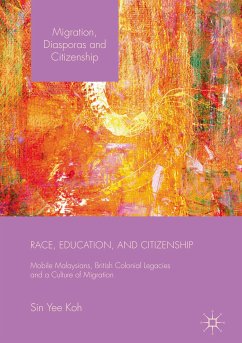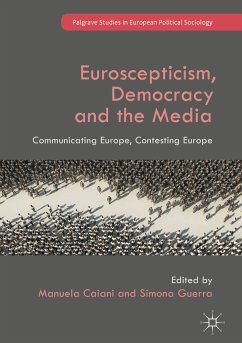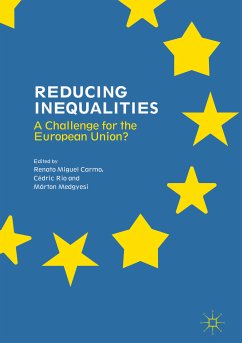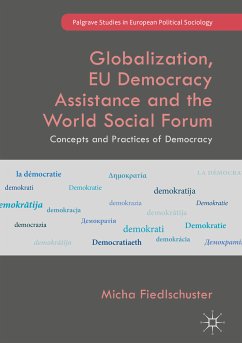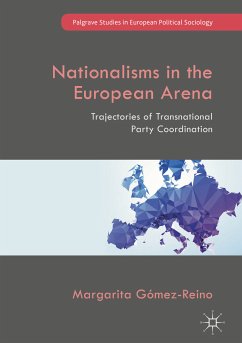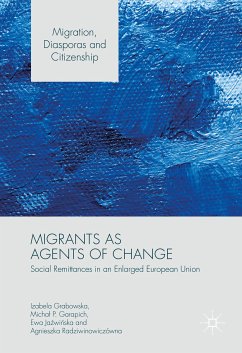
Migrants as Agents of Change (eBook, PDF)
Social Remittances in an Enlarged European Union
Versandkostenfrei!
Sofort per Download lieferbar
40,95 €
inkl. MwSt.
Weitere Ausgaben:

PAYBACK Punkte
20 °P sammeln!
This book offers a unique and innovative way of looking at the paradoxical consequences of human mobility. Based on a three-year transnational multi-sited longitudinal research project, it demonstrates that not all migrants acquire, transfer and implement social remittances in the same way. Whilst the circulation of ideas, norms and practices is an important aspect of modernity, acts of resistance, imitation and innovation mean that whilst some migrants become ordinary agents of social change in their local microcosms, others may contest that change. By putting this individual agency centre st...
This book offers a unique and innovative way of looking at the paradoxical consequences of human mobility. Based on a three-year transnational multi-sited longitudinal research project, it demonstrates that not all migrants acquire, transfer and implement social remittances in the same way. Whilst the circulation of ideas, norms and practices is an important aspect of modernity, acts of resistance, imitation and innovation mean that whilst some migrants become ordinary agents of social change in their local microcosms, others may contest that change. By putting this individual agency centre stage, the authors trace how social remittances are evolving, and the ambiguous impact that they have on society. This thought-provoking work will appeal to students and scholars of sociology, geography and anthropology.
Dieser Download kann aus rechtlichen Gründen nur mit Rechnungsadresse in A, B, BG, CY, CZ, D, DK, EW, E, FIN, F, GR, HR, H, IRL, I, LT, L, LR, M, NL, PL, P, R, S, SLO, SK ausgeliefert werden.
Alle Preise in Euro und inkl. der gesetzl. MwSt. | Innerhalb Deutschlands liefern wir preisgebundene Bücher versandkostenfrei. Weitere Informationen: bitte hier klicken
Support
Bitte wähle dein Anliegen aus:
Rechnungen
Bestellstatus
Retourenschein
Storno



